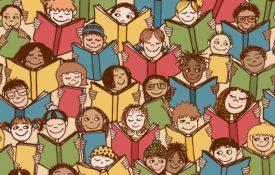-
Spark Creativity with Thomas Edison’s Napping Technique
Thomas Edison was famously opposed to sleeping. In an 1889 interview published in Scientific American, the ever energetic inventor of the lightbulb claimed he never slept more than four hours a night. Sleep was, he thought, a waste of time. Yet Edison may have relied on slumber to spur his creativity. The inventor is said to have napped while holding a ball in each hand, presuming that, as he fell asleep, the orbs would fall to the floor and wake him. This way he could remember the sorts of thoughts that come to us as we are nodding off, which we often do not recall. Sleep researchers now suggest that Edison might have been on to something.
-
A Youth Mental Health Crisis Was Already Brewing. The Pandemic Made It Worse, Surgeon General Says.
The situation painted across the U.S. surgeon general’s 53-page advisory is dire. Compared with 2019, emergency room visits for suicide attempts rose 51 percent for adolescent girls in early 2021. Among boys, there was a four percentage point increase. Depression and anxiety doubled during the coronavirus pandemic, with 25 percent of youths experiencing depressive symptoms and 20 percent suffering anxiety symptoms, according to the report published Tuesday. ...
-
What We Kept, What We Ditched, What We Cooked: How COVID Changed the Holidays
Mary-Liz Lichtenfels got burned in last year’s pandemic Christmas tree shortage. And instead of hosting 19 people for the holiday, it was just her, her husband and their three millennial children. It was a quieter celebration, but Lichtenfels, who runs the McLean, Va., staging business Redesign by ML, says all of that uncertainty gave her the courage to mix things up in 2021. Last year’s stark December, before coronavirus vaccines were widely available, disrupted many holiday rituals. Many had lost loved ones to covid-19. In-person celebrations were canceled and hastily moved to Zoom. Cookie parties were mothballed, and Grandma couldn’t come make the pizzelles.
-

NIH Behavioral Science Office Identifies Research Accomplishments from the Field
These accomplishments highlight the ways in which NIH-funded behavioral and social science research has helped our understanding of human health and disease. Visit Page
-

Storybooks Could Be an Early Source of Gender Stereotypes for Children
Reading to children offers many benefits. A new study reveals, however, that popular storybooks are an underrecognized source of gender stereotypes, and children’s books often contain stronger gender biases than texts for adults. Visit Page
-
A Good Life is Painful
Can we live a good life without suffering? Notice that I used the word “good” and not “happy.” It doesn’t make any sense to ask whether we can suffer and be happy at the same time, but can we live a full and meaningful life without certain kinds of suffering? That’s a much harder question. I just watched an episode of The Twilight Zone that explores this in a way only that show could. It’s about a gangster who dies and wakes up in a place that has all the markings of heaven — or at least what a guy like that would imagine as heaven. He has all the sex and money and power he wants. He loves it at first. But then he grows bored and aimless and starts to hate it.

